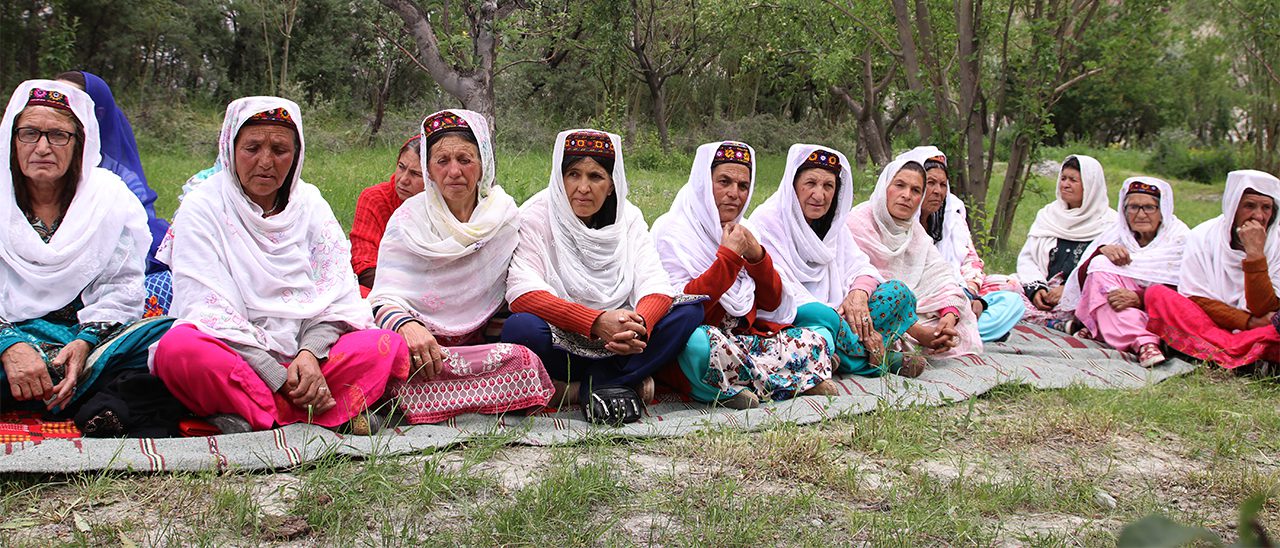This site uses cookies, as explained in our terms of use. If you consent, please close this message and continue to use this site.
 Communities in Gilgit-Baltistan, north Pakistan, are constantly faced with the harsh conditions of the upper Indus region: a rocky terrain that makes livelihoods arduous. Villagers have now begun facing more pressures as climate change impacts traditional practices. Receding glaciers have resulted in the drying up of irrigation channels around villages, threatening food security. To combat this, ICIMOD – along with WWF-Pakistan, the Pakistan Council of Research in Water Resources, and other partners – has piloted the use of the hydraulic ram pump in Gilgit-Baltistan. This technology does not require any external power source and offers efficient water distribution to agricultural land at higher elevations. Women farmers from the Gilgit-Baltistan community have already started growing high-value crop varieties using water delivered by the pump.
Efficient Irrigation Technology for High Value Horticultural Production, MORKHUN, SOST.
Photo: Sajid Iqbal/ICIMOD.
Communities in Gilgit-Baltistan, north Pakistan, are constantly faced with the harsh conditions of the upper Indus region: a rocky terrain that makes livelihoods arduous. Villagers have now begun facing more pressures as climate change impacts traditional practices. Receding glaciers have resulted in the drying up of irrigation channels around villages, threatening food security. To combat this, ICIMOD – along with WWF-Pakistan, the Pakistan Council of Research in Water Resources, and other partners – has piloted the use of the hydraulic ram pump in Gilgit-Baltistan. This technology does not require any external power source and offers efficient water distribution to agricultural land at higher elevations. Women farmers from the Gilgit-Baltistan community have already started growing high-value crop varieties using water delivered by the pump.
Efficient Irrigation Technology for High Value Horticultural Production, MORKHUN, SOST.
Photo: Sajid Iqbal/ICIMOD.
Promoting gender-inclusive research, networking, policy making, and action on the water- and climate change- related issues

Women are primary custodians of water resources in the HKH region. With changes in the composition of our societies, the climate, and water availability, they face an unequal burden of the adverse impacts. Women’s roles related to water have been poorly addressed in research, practice, and policy making, and as a result, we have only partial knowledge in this critical sector.
To facilitate more knowledge sharing, data exchange, and networking on gender equality to influence national and transboundary policies and processes on the gender–water–food–energy nexus, in January 2020 a Gender Resource Group (GRG) for Pakistan was formed within the Upper Indus Basin Network (UIBN) with the support of the UIBN Pakistan Country Chapter. The group is composed of experts on wide-ranging issues concerning women and water, energy, livelihoods, and climate change in the basin area within Pakistan.
The GRG members met for the first time online in May 2020 to discuss how women are responding to the impacts of the COVID-19 pandemic across provinces in Pakistan. Members shared their involvement in policy advocacy and on-the-ground action to support women during the pandemic. They suggested wider research and network building to address pandemic-related issues in the short term and to build resilience in the long term.
We plan to expand this gender-focused approach to the other three Indus basin countries – Afghanistan, China, and India – with the establishment of country-level GRGs as well as a regional group, keeping in mind that we can resolve gender-, water-, and climate change-related issues in the HKH only by addressing their interlinkages with one another.